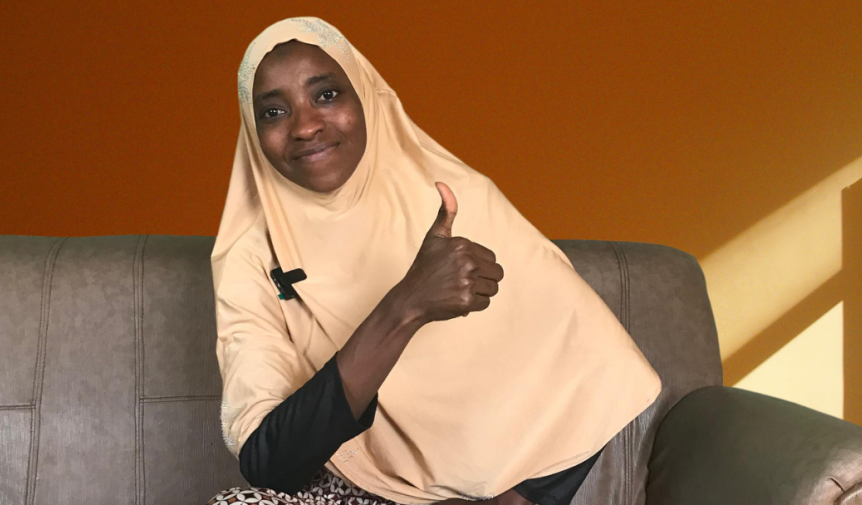Children play a crucial role in the fight against infectious diseases from a young age. Sulaimon Kaosarat, a resident of the Oluwa-Akere ward in the Ajeromi-Ifelodun Local Government Area of Lagos State, has a deep passion for children and is dedicated to teaching them hygienic practices that can protect them from infectious diseases.
The SCKaR-IDP project provided her with valuable insights into daily habits that may contribute to the spread of infectious diseases.
In her interview, she mentioned that she uses positive reinforcement, such as buying biscuits, to encourage children to adopt hygienic practices.
What are some of the new skills or things you learned?
I have learned a lot about health, like keeping proper hygiene and taking care of one’s health. Before now, when I go out and come back, I do not wash my hands; I just use my hands to rub my clothes. But now, even before I touch anything, I make sure to wash my hands. Even before I touch any spoon or anything in the kitchen, I must rinse them again, even if they are already washed.
How confident do you feel now about teaching others how to prevent the spread of diseases?
Ah! I am 100% confident because I will tell them health is wealth because if they do not do it freely now, when the implications come, they will spend more than they thought. I tell them not to be ignorant and take with levity anything anybody tells them about their health.
Can you share a specific example of something you did in your community to spread the word about staying healthy after you became a Health Champion?
In my neighborhood, they see it like I disturb them a lot. I play a lot with children, so I usually advise the little kids in my neighborhood to wash their hands and give them biscuits for doing so. So whenever I tell them to wash their hands, they always obey because they know that I will buy them biscuits. I take little children as my friends, and I believe that anything you teach them will always ring in their heads, and even when their parents are not doing the right thing, they also correct them. My focus is on young children.
What changes have you noticed around you since you started sharing what you learned?
I have noticed that whenever those children see me, they know that they are supposed to be doing the right thing. Sometimes they even advise each other and say “go and do this oh if not aunty will not buy biscuit for you”.
What challenges have you faced while trying to use what you learned in the community and how did you handle these challenges that made reception easier?
I have faced a lot of challenges, and it happens especially when you are in the midst of people that are not learned so they count things as “her own is too much, na she go first go school?” [She is doing too much, is she the first person to be educated?]. I always try to encourage them, reminding them that health is wealth. Some of them still argue that in the olden days people were not this cautious and they still lived very long up to 120 years sef but I always tell them that they cannot compare because what we eat this days is chemically processed sometimes and it reduces the life span of humans but if we can be hygienic about it can increase our lifespan. I just kept on convincing them. If you want to also teach someone, it should first start from you when they see that you are doing the right thing, especially your family, so that others can emulate them.
In the future, what role would you like to play in keeping your community safe, and what would you like to see differently in your community when it comes to staying healthy?
In the future, I want to enlighten more people about health and create awareness.

Watch the full story about the project using this link.




